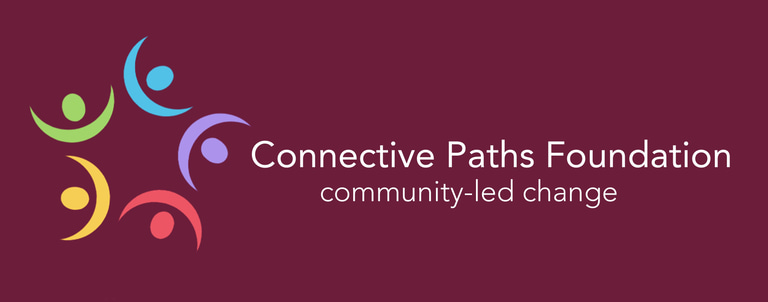What we do
CPF forms equitable and ethical partnerships with community-based organisations in the Global South, particularly women-led organisations and other marginalised groups. We provide funding and technical assistance to strengthen long-term organisational capacities and to support community-led solutions. Our current programmes are focused on urban and rural poor communities in Asia and Africa.
CPF also operates a mission-driven social business arm designed to bridge critical learning, ethical practice, and material support to community-led development in the Global South. The social business delivers high-quality seminars, workshops, and applied training for universities, development practitioners, and institutions working in international development, humanitarian action, and human rights.

Participatory Grant Making
CPF funds co-created solutions to accelerate progress towards gender equality and the SDG 2030 Agenda together with women’s NGOs—with a focus on reaching the most under-resourced and underrepresented grassroots women and community-based organisations.
We aim to provide an alternative to current practices that have led to short-term, donor-driven and project-based funding. CPF does not just fund projects; it invests in organisations to strengthen feminist activism that address the priorities of the communities and navigate the shrinking democratic space for civil society. Throughout the grant-making process, we will strive to have partnerships that are not just transactional, but transformational.

Organisation Strengthening and Technical Support
CPF wants to ensure that the women’s NGOs and CBOs receiving grants have the best chance of success with their initiatives. Through long-term partnerships that include systematic organisation development approaches, the grantees are supported to gain measurable institutional capacities in order to sustain their work towards their mission and serving the communities. These will include technical capacity building in:
Project management, financial management and strengthening systems, structures and strategies for organisation effectiveness (i.e., through organisation development (OD) assessments, change management, etc.)
Resource mobilisation and alternative fundraising
Gender analysis, mainstreaming and inclusion strategy development
Using and generating data in order to design evidence-based projects for social norm change
Advocacy, local governance and community mobilising
Additionally, the funded NGOs and CBOs are trained and guided in co-implementation models to ensure the community women, men and youth are consulted and to prevent the risk of power imbalances being mirrored by all grantees to their constituents.

Action Research and Advocacy
Research and advocacy plays an integral role in CPF's strategy to identify epic successes and failures in having equitable partnerships and "shifting the power" to communities in the global south. CPF aims to bridge the gaps between research and practice by testing and evaluating ways to catalyse community-led development in its own processes.
CPF invests in documenting its experience in participatory grant making, as well as in conducting listening and learning conferences with all its grantees to build an evidence base that could demonstrate how to catalyse community-led change. In this process, grantees will also be guided in conducting community-led monitoring and to improve how they can showcase their achievements, capacities and contributions to global development.
CPF has a wide network of research experts with diverse backgrounds composed of international human rights advocates, anthropologists, political scientists, lawyers, and social scientists, which will contribute to a multi-disciplinary approach in the foundation’s knowledge generation.

Women Empowerment and Leadership Academy for Development (WELeAD)
WELeAD is key to the nonprofit social enterprise model of CPF, which operates on a full cost-recovery, impact-first model. All profits generated (100%) are reinvested directly in supporting grassroots community-based organisations (CBOs) and community-led development initiatives in the Global South, and in advancing global advocacy for equitable partnerships.
CPF is offering learning experiences for young NGO professionals and students in Development Studies, Humanitarian Action, Gender Studies, and related fields, in partnership with universities and NGOs in the Netherlands.
This means that every paid workshop, institutional partnership, or donor contribution creates dual impact:
Immediate impact
– High-quality, ethical training for future development professionals
– Better-prepared graduates entering the UN, NGOs, and donor institutionsDirect downstream impact
– Financial and technical support to Global South CBOs
– Investment in locally led solutions, leadership, and organisational sustainability
Seminars include:
Responsible Leadership in the UN — Perspectives from the Global South: The United Nations remains one of the most influential actors in global development, humanitarian response, and norm-setting. Yet it is also one of the most contested. For students entering the development sector today, the UN represents both aspiration and contradiction: a space of global ideals operating within deeply unequal political and economic systems.
Purpose: To critically examine what responsible leadership means within the UN system when viewed from Global South perspectives; and to help students translate critical insight into career-relevant competencies (policy literacy, systems thinking, ethical decision-making, and applied analysis). This seminar is complemented by deepening workshops on: policy careers, UN consultancies, feminist & decolonial practice, M&E, and advocacy strategy.
Integrating gender and preventing exploitation of and violence against women in the aid sector: “Shifting the power” and “decolonising aid” have gained traction in policy and practice. Yet gendered power, exploitation, and violence—especially as experienced by Global South women and women-led CBOs—remain under-analysed and under-addressed, particularly in humanitarian response.
Purpose: This seminar interrogates who power is being shifted to, who is still absorbing harm, and what responsible leadership looks like when gender is taken seriously within decolonising aid efforts.
CPF is also developing a learning programme for managers and staff of NGOs, development consultants, researchers, volunteers and other practitioners to strengthen networks and provide a platform to decolonise development consulting and advisory services.
CPF will provide full and partial scholarships in order to increase the number of participants from the Global South with technical capacities to support community-led development. The programme will utilise a blended approach, combining online and face-to-face sessions together with hands-on mentoring and knowledge exchange.
WANT TO LEARN MORE ABOUT THE SEMINARS WE ARE OFFERING? CONTACT: info@connective-paths.org
